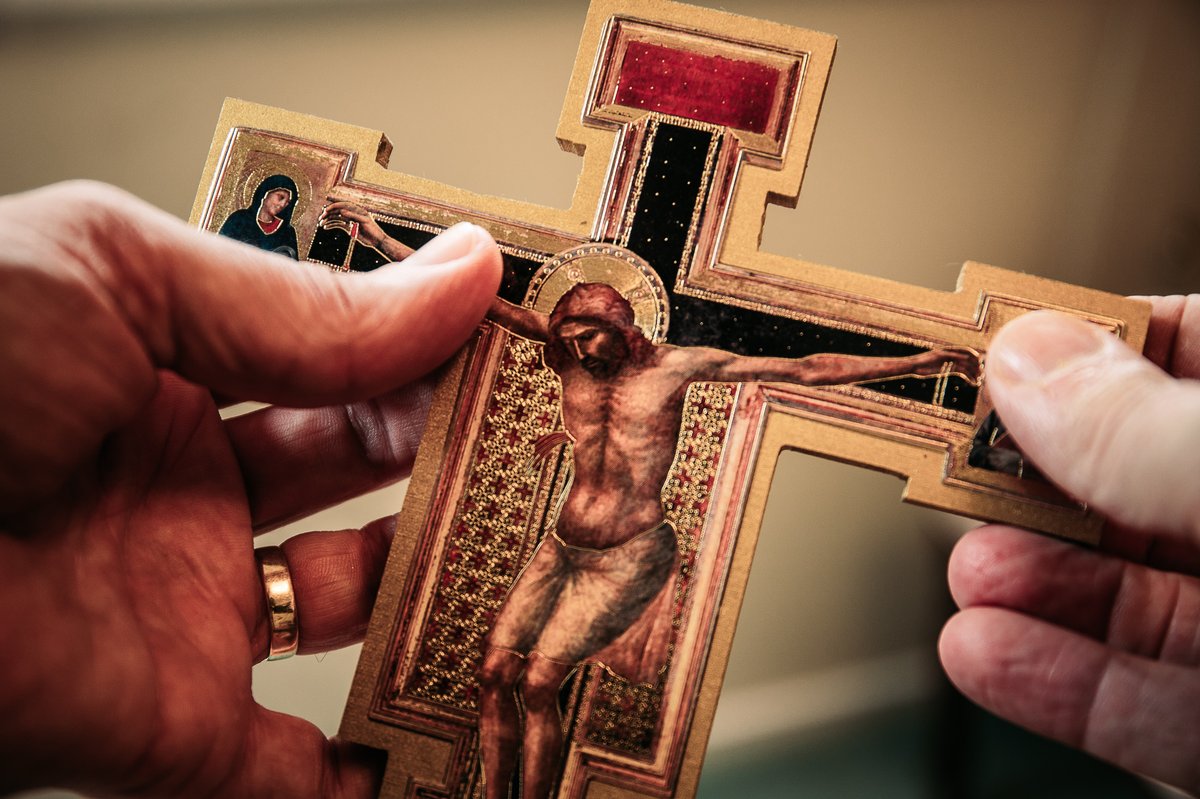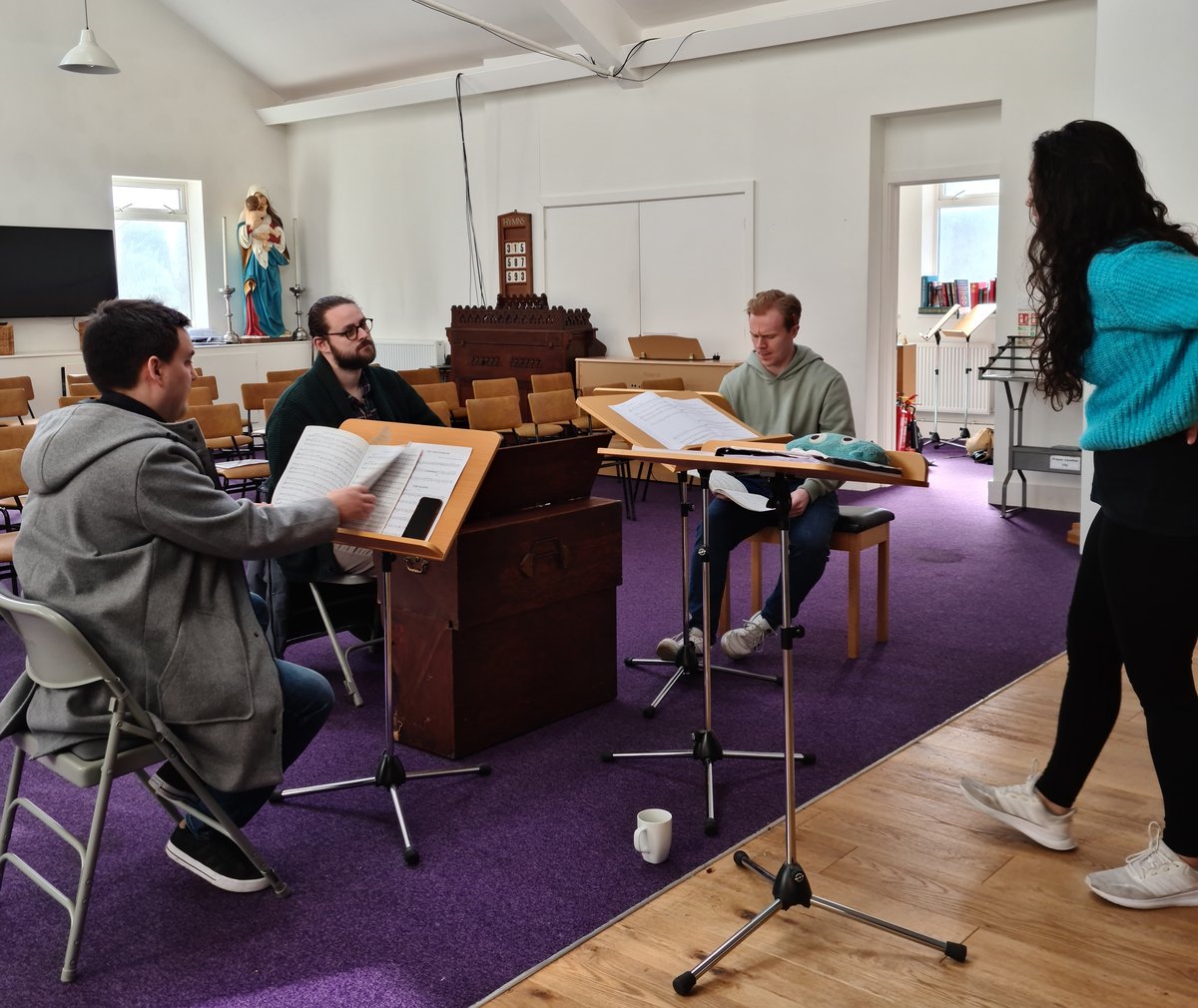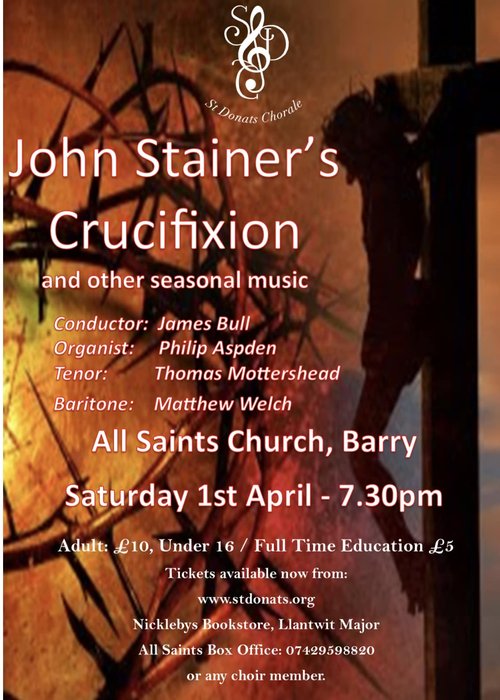Music and the drama of the Passion

John Stainer's The Crucifixion is still performed worldwide during Easter, including churches in our diocese, over a century after its composition. Why does this oratorio, which the composer himself dismissed as rubbish, remain popular today? What can Stainer's music teach us about entering into the drama of Holy Week?
In the first of series of Holy Week and Music blogs, we asked to James Bull, Organist and Choirmaster at All Saints Church Barry and Benjamin Teague, Director of Music at St Paul's Grangetown, to share their thoughts .
The importance of music has never diminished

Musically the church is rather stark at this time of year, reflecting the barrenness and solitude of Christ’s Lenten journey in the wilderness.
The Christian story is one that has always been transmitted through song. Since the humble beginnings of Roman and Gallican chant in the first centuries after Christ’s death, we have travelled through the chant of Pope Gregory I and the increasing complexity of the Renaissance, Baroque, and Classical eras, until we arrive at the 19th Century form of the oratorio, finding that the writings of the prophets and apostles have taken the form of 2-3 hour long musical works for choirs of well over 1000, with an orchestra to match. Of course, we do not have the funding (or indeed interest) these days for such ostentatious performances, nor do we have the money to commission the modern Mozarts of the world to write us a Mass simply because we fancy a change in the third Sunday of Lent.
Music strengthens our perception and reception of the Christian story.
So where does this leave us with such musical ancestry?
Well, there are two options. We can remain despondent that ‘things ain’t what they used to be’ and accept we will be not able to perform these gargantuan works with our smaller resources, or we can be positive and strive to perform well what we can perform, and develop our music programmes into accessible spaces for all by engaging the community. To quote the 19th Century French author Victor Hugo, ‘Music expresses that which cannot be said and on which it is impossible to be silent.’. The importance of music in Christianity has never diminished, but its form has changed. The reaction to music is inexplicable. We cannot always fully explain why we like or love something, but it is an emotion that can strengthen our perception and reception of the Christian story.
The recent ‘come and sing’ performance of Stainer’s Crucifixion at St Paul’s Grangetown has proven that there is still a demand to both sing the Christian repertoire, and a desire to view and partake of it, whether religiously or not. You can watch some of the performance on Facebook.
The performance acted as a prelude to Passiontide, ushered in the following morning at Mass. Of course, one can perform any repertoire at any time of year but non-liturgical performances of works such as Mendelssohn’s Elijah are popular in all months of the year.
Musical settings of this story remind us that the gospel story is not 2D, it is alive and reigns within us all
But what makes a liturgical performance different?
It implies that there is something else present; that we are observing the sacred Passion or birth of our Lord at the appointed time, or remembering another sacred feast of the church year. Musical settings of this story serves to remind us that the gospel story is not 2D, it is not just words on a page, but it is alive and reigns with us in all our lives, musically or otherwise, and has an important place in modern church life.
Benjamin Teague
Music sets the tone for Holy Week
Composed over 130 years, old, Stainer’s Crucifixion is still sung regularly by church choirs at Easter. The haunting bass and tenor solos suit the drama of emotion of the events leading to Christ's death on the cross. The composition also includes well-known hymns which are then sung by the whole congregation.
Music sets the tone for the journey we make to the cross during Holy Week
For me, Stainer's The Crucifixion is the perfect start to Holy Week. It sets the tone for the journey we make to the cross during our Holy Week worship as we recount the passion of Christ. Stainer’s setting of the seven last words from the cross is highly effective because it is followed by this stark and unaccompanied final statement from the tenor soloist, ‘And he bowed his head and gave up the ghost’. I will guarantee that anyone hearing this will feel moved and embodied by the Easter story.

All Saints Barry are hosting a performance of The Crucifixion and other seasonal music on Saturday 1st April at 7:30pm.
Conduct by James Bull and performed by St Donats Chorale.
Tickets now available
St Donats Chorale event tickets from TicketSource.
James Bull